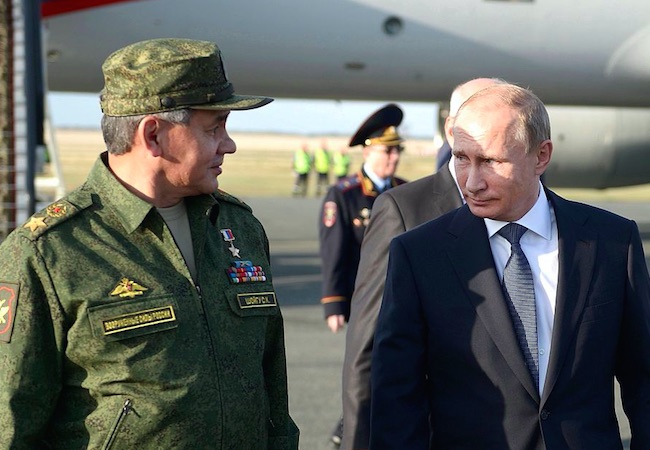Russia risks another Chechnya

By Oliver Mihell-Hale
The brutality of the Chechen wars still lingers in the minds of the Russian Public. Two bloody conflicts fought in the space of a decade have scarred the Russian psyche, thousands of soldiers lost to pacify the rebellious province. Winning the second Chechen War was Putin’s crowning glory, does he want to risk reopening old wounds and undermining his own legacy?
The superiority of Russia’s military relative to that of Ukraine is undeniable – more troops, more tanks, more aircraft. And with the likelihood of any NATO militaries contributing their own forces to the defense of Ukraine negligible, it raises the question of how Ukraine will, or even could, fend off an invasion from the East. The answer could be found in asymmetric warfare, the Ukrainian military adopting a strategy employed by insurgents and terrorist groups, rebels and non-state actors. A strategy of attrition, a battle of wills to undermine not just the Russian military but also the Russian people’s support for the conflict.
Recent history has shown us that asymmetry in warfare does not necessarily make a conflict any easier or straightforward for the superior force, certainly not when that force also happens to be an invading one. So when one looks to a potential Russian invasion of Eastern Ukraine, beyond that of unmarked “little green men” whose presence is already known in the Donbass region, it is worth reminding oneself that the result of this conflict would not be a foregone conclusion.
An attritional defense of Eastern Ukraine would see Russia gaining control of the territory it seeks, realistically there is little that Ukraine could do to stop the advance. The urban areas and larger cities might prove more challenging than the surrounding terrain but would ultimately fall. However, occupying and controlling that territory would prove a far more difficult task. This strategy aims to establish that the group carrying it out is able to endure more and is more
The strategy of attrition aims to demonstrate a group’s commitment to a cause, its willingness to continue its actions until its opponent yields to its demands. When employed by non-state actors, it communicates not just with its opponent’s military and government, but also with its population through acts of violence.
We could expect to see a persistent harassment of Russian forces in the region, the spectre of death waiting around every corner. With NATO governments eager to provide material support to the Ukrainian military, we would see an extraordinarily well-equipped resistance force. A resistance force that would be capable of not just inflicting casualties upon infantry, but armor and aircraft as well. Still not enough to confront and defeat the Russian military in open battle, but sufficient to make the lives of the occupying forces hellish.
As was seen in the Chechen conflicts, there would be a constant loss of Russian lives, a steady trickle of body bags being flown home, a stream of dying sons and grieving mothers. A perpetual sense of insecurity for the military, a lack of confidence in their actions, knowing that even in the air or in their tanks that they are not safe. Russia would risk being bogged down in a gory mission to quash this resistance to little success, the motivation of the occupied far stronger than that of a fast demoralizing military, young soldiers whose willingness to fight depletes daily and a population growing tired of constant bloodshed without battlefield victories as there simply are no battles, no gains to be made.
This was the scene in the first Chechen War, and the second Chechen war was similarly brutal. However, Russia’s commitment to maintain control over territory it perceived as very much a part of itself sufficient to allow it to persist and ultimately claim victory. This victory being one of Putin’s finest moments as president of Russia, bringing peace and victory, and ending the bloodshed. Does Russia have the stomach for another conflict of that magnitude? Would the Russian people be willing to endure that degree of violence and loss for a foreign war? And would Putin be willing to potentially undermine his own success as a peacemaker?
Oliver Mihell-Hale is a PhD student studying International Relations at the University of Nottingham, and focussing on patterns of violence associated with different terrorist strategies.




